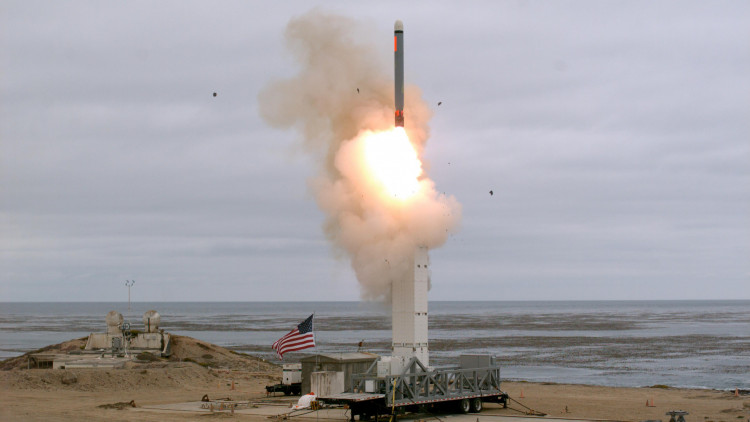Taiwan was irate about its "evil neighbor" for firing numerous missiles into its surrounding waters Friday, four of which passed over the island's capital Taipei in an unprecedented escalation during live-fire drills.
Chinese missiles launched at Taiwan have fallen in Japanese waters, according to Tokyo, as Beijing held its largest-ever live-fire drills surrounding the island despite warnings that a miscalculation might trigger a conflict.
The island of Yonaguni, which belongs to Japan, is located about 110 kilometers off the eastern coast of Taiwan, and Japan's "economic zone" - waters in which it has unique rights - covers roughly half the distance between the two.
Five of the nine ballistic missiles unleashed by China landed in Japan's 'exclusive economic zone,' the country's defense minister said Friday, adding that he has protested to Beijing.
China has previously launched ballistic missiles against its neighbor, but this is the first time the projectiles have landed in Japanese territory.
When asked about China's missile launches, Taiwan's premier, Su Tseng-chang, told reporters in Taipei on Friday that China's military drills are damaging the most commonly used waterway in the world. He referred to China as the "evil neighbor."
Taiwan reports that China fired a total of 11 ballistic missiles into the waters off of its south-western and north-eastern coasts, in multiple salvos beginning at 2pm local time and continuing until 4pm.
Long-range bombers and hypersonic missiles are expected to be used in the drills, which are scheduled to conclude on Sunday. The two aircraft carriers of China have also been deployed in the area.
China also scrambled fighter jets and dispatched some of its most modern warships to encircle the island, according to state-run media.
It is believed that American forces are in the area, and surveillance planes equipped to track missiles have been dispatched to keep a close watch of the drills.
Chinese President Xi Jinping announced the exercises using U.S. House Speaker Nancy Pelosi's visit to the island from Tuesday to Wednesday as a reason.
Pelosi is the most senior politician to visit since Newt Gingrich in 1997, but her visit followed a Senate delegation that received no response.
The female U.S. official, a longtime opponent of China's human rights record and anti-democratic leaders, defended the visit by asserting that it demonstrated America's ongoing support for its friend.






